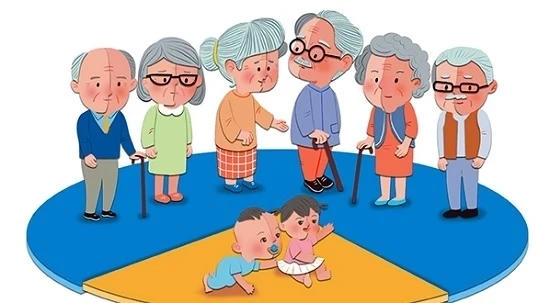
The process of population aging has a serious impact on all aspects of human life: the economy, savings, investment and consumption, the labor market, pensions, taxation and intergenerational transfers. In the social sphere, this affects the state of people's health, family composition, lifestyle, housing conditions and population migration.
Differences in employment and income between men and women widen the gender gap in pension coverage, increasing the risk of poverty for older women. The problem of employment in the sphere of social production, adequate remuneration for women, the creation of conditions for reducing gender differences in pension savings for men and women, as well as economic and social support for the elderly population are tasks that need to be addressed when developing state programs in the field of economic and social development countries.
Kazakhstan is just beginning to enter the category of countries with a predominance of the elderly population, and the problems arising from this in the future should lead to the development of those industries that are directly related to servicing old age. To a large extent, this will affect healthcare. The health problems of the elderly population are the causes of disability and mortality. Diseases of the circulatory system, musculoskeletal system, digestive organs, respiration, eyes and their appendages predominate in the structure of chronic pathology.
High morbidity rates in the population over 60 years of age determine the high level of visits by older people to outpatient organizations - they are twice as likely as others to apply to these institutions. Taking into account the peculiarities of diseases in the elderly, it is necessary to increase the number of gerontologists, therapists and other specialists, which must be taken into account when determining the priorities for the development of the health care system and education in the republic.
One of the main directions in the formation of the infrastructure necessary for the elderly is the development of a system of services for employees of local organizations to serve the elderly and lonely people. At the same time, affordable housing and suitable modes of transport that enable people to continue to live at home are absolutely essential to maintaining self-sufficiency. These factors facilitate social contacts and allow older people to remain active members of society.
Standard.kz

Comments
Чтобы оставить комментарий зарегистрируйтесь или войдите
Авторизация через